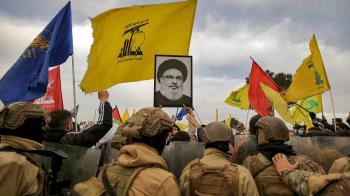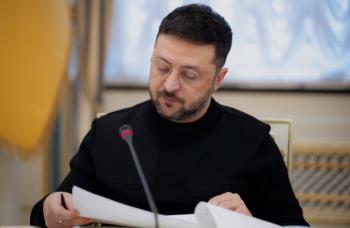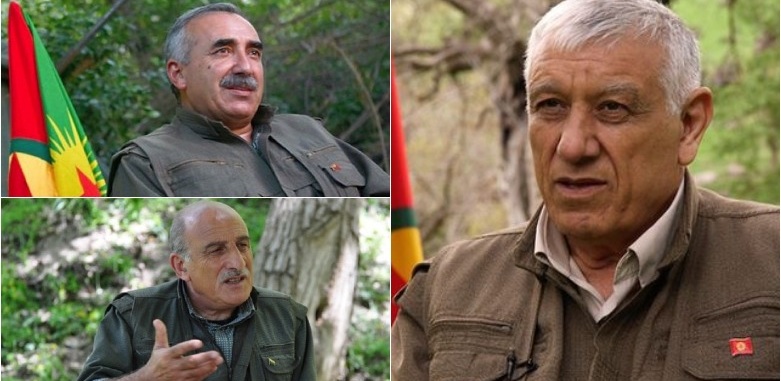Alwaght- On Tuesday, the US Department of State offered a reward for information on three leaders of the Kurdistan Workers’ Party (PKK). Mathew Palmer, the US Deputy Assistant Secretary of State stated that any information that will lead to the capture of the militant group’s three top commanders will be rewarded. The three targeted leaders are Murat Karayilan, Cemil Bayik, and Duran Kalkan, consecutively with $5 million, $4 million, and $3 million rewards.
The list has sparked huge media circulation at the present time. The issue is of considerable influence on the regional developments and also the US-Turkey relations. This analysis is going to first shed light on the life of the three wanted PKK leaders. Then, the Americans’ goals behind publishing the list will be brought in the spotlight.
Three leaders' life
The total American price for the data on the Kurdish leader is $12 million. With regard to the sums, it seems that Murat Karayilan is the most wanted figure.
Karayilan was born in Birecik town in the southeastern Turkish city of Urfa in 1954. He studied political science in the Ankara University. While in the university, he got along with Abdullah Öcalan, the leader of the PKK terrorist group. Karayilan, along with Öcalan, Bayek, and Kalkan, founded the Kurdistan Workers' Group.
After Öcalan was captured by Turkey and imprisoned in 1991, Karayilan played a leading role in the terrorist group up to 2013. In 2013, during the group’s ninth congress, he was removed from the party's military wing command, Kurdistan Communities Union (KCK) and was given the command of the HPG, or the People’s Defense Forces. In fact, Karayilan, despite losing a top post at the party, remains the head of military operations against the Turkish army. Some sources say that after 2014, he led the Syrian Kurds' fight against the ISIS terrorist group. All in all, his role in the party is so big that almost any decision must pass his filter before materialization.
The second US-wanted person is Cemil Bayik, the strongest figure and the current political leader of the terrorist group. Known as Rafiq Jomaa among his fellow party members, Bayik was born in 1951 in Elazig, in eastern Anatolia of Turkey. He is one of the founding leaders of the party.
Bayik is primarily known for managing the PKK’s military affairs. Since the foundation of the PKK up to 1995, he was the commander of the party's military wing. In the ninth congress of the party, he was picked as the co-leader of the KCK. He remains the successor to Karayilan to date. He is known as the most conservative leader of the party and is against any changes in the PKK's internal structure.
And the third man in the PKK the US wants is Duran Kalkan. His real name is Salahaddin Abbas and was born in 1954 in a village in the suburbs of the southern city of Adna. He joined the PKK in 1980 and lived in Germany up to 1990. Then, he returned to the Qandil Mountains, an area in northern Iraq. During his life in Germany, Kalkan created the funding network of the PKK. That is why he is recognized as the head of the funding of the terrorist group. He is presently known as the third top leader of the PKK.
During their activities, the three leaders lived in the Qandil Mountains secretly. Their names are on the Turkish terrorism blacklist. The Turkish intelligence so far launched several unsuccessful assassination attempts against them. The last attempt was in 2017 in Iraq’s Sulaymaniyah.
The US plays Turkey with Kurdish cards
The US reward for any information that will lead to the capture of the three PKK leaders comes while over the past few years, the Turkish leaders have been accusing the Americans of providing support for the terrorist group. Last month, the Washington-Ankara tensions reached a peak but after Turkey released the American pastor Andrew Brunson, the escalation largely winded down between the NATO members.
Despite that, the Turkish officials regularly ask the Americans to end backing for the Syrian Kurds. Amid the strained political climate, Washington’s reward for information on the three leaders seeks a set of major goals.
The first goal of the US is to burnish its largely damaged face in the eyes of the Turks. The US President Donald Trump’s face has been badly affected in Turkey due to his hostile policies in dealing with Turkey. The reports suggest that the US popularity in Turkey is now at the lowest level since the Second World War. Now, the Americans have decided to build new trusted face of themselves among the Turks.
The second goal rests in an American interest to play Turkey using the Kurdish card. Washington wants to pass a message to Turkey and also the world that contrary to the Ankara criticism of relations between the US and the Syrian Kurds, the Americans remain to tighten the noose on the PKK and openly call the group a terrorist organization. But they are still unwilling to blacklist the People’s Protection Unit (YPG), the military wing of the Democratic Union Party (PYD), as a terrorist group. Turkey says the YPG is the Syrian extension of the PKK.
The third objective is that the Americans want to send a signal to Ankara telling it that the White House is ready to reach a deal on the Syrian Kurds in Syria. The deal, if reached, will open the road for Turkey to chase the Kurds inside Syria in the east of Euphrates.
And yet the fourth aim is clear. The reward move is a kind of concession to the Turkish President Recep Tayyip Erdogan to bring him back on the US side in the regional developments. The fact is that Washington strongly needs Turkey’s cooperation and coordination in the new regional situation. The American administration hopes that by brazenly condemning Turkey’s archenemy and chasing its leaders it can have Turkey back for the good of its West Asia strategy.



























